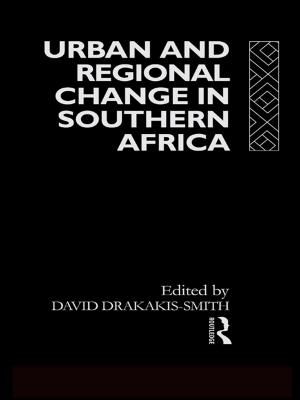Masculinity and Marian Efficacy in Shakespeare's England
Fiction & Literature, Literary Theory & Criticism, British| Author: | Ruben Espinosa | ISBN: | 9781317099871 |
| Publisher: | Taylor and Francis | Publication: | May 6, 2016 |
| Imprint: | Routledge | Language: | English |
| Author: | Ruben Espinosa |
| ISBN: | 9781317099871 |
| Publisher: | Taylor and Francis |
| Publication: | May 6, 2016 |
| Imprint: | Routledge |
| Language: | English |
Masculinity and Marian Efficacy in Shakespeare's England offers a new approach to evaluating the psychological 'loss' of the Virgin Mary in post-Reformation England by illustrating how, in the wake of Mary's demotion, re-inscriptions of her roles and meanings only proliferated, seizing hold of national imagination and resulting in new configurations of masculinity. The author surveys the early modern cultural and literary response to Mary's marginalization, and argues that Shakespeare employs both Roman Catholic and post-Reformation views of Marian strength not only to scrutinize cultural perceptions of masculinity, but also to offer his audience new avenues of exploring both religious and gendered subjectivity. By deploying Mary's symbolic valence to infuse certain characters, and dramatic situations with feminine potency, Espinosa analyzes how Shakespeare draws attention to the Virgin Mary as an alternative to an otherwise unilaterally masculine outlook on salvation and gendered identity formation.
Masculinity and Marian Efficacy in Shakespeare's England offers a new approach to evaluating the psychological 'loss' of the Virgin Mary in post-Reformation England by illustrating how, in the wake of Mary's demotion, re-inscriptions of her roles and meanings only proliferated, seizing hold of national imagination and resulting in new configurations of masculinity. The author surveys the early modern cultural and literary response to Mary's marginalization, and argues that Shakespeare employs both Roman Catholic and post-Reformation views of Marian strength not only to scrutinize cultural perceptions of masculinity, but also to offer his audience new avenues of exploring both religious and gendered subjectivity. By deploying Mary's symbolic valence to infuse certain characters, and dramatic situations with feminine potency, Espinosa analyzes how Shakespeare draws attention to the Virgin Mary as an alternative to an otherwise unilaterally masculine outlook on salvation and gendered identity formation.















